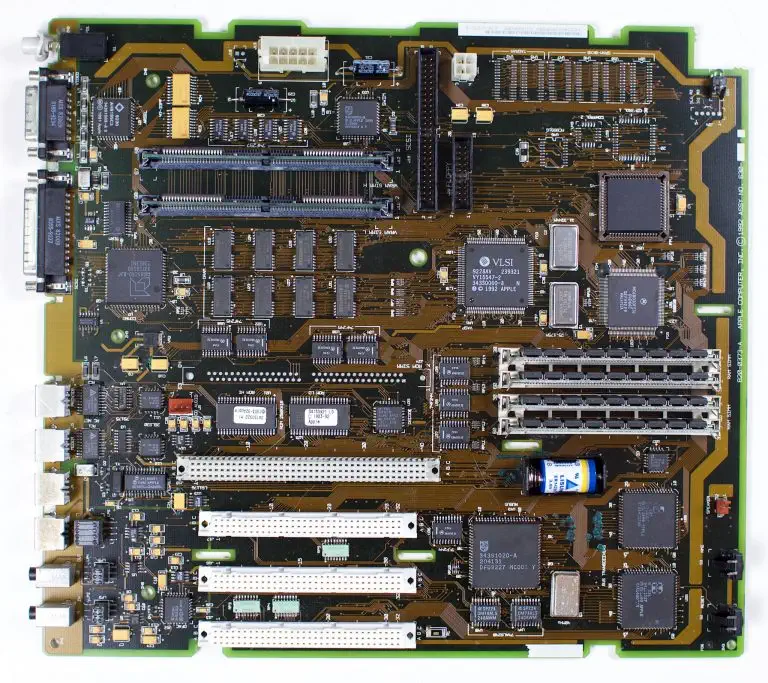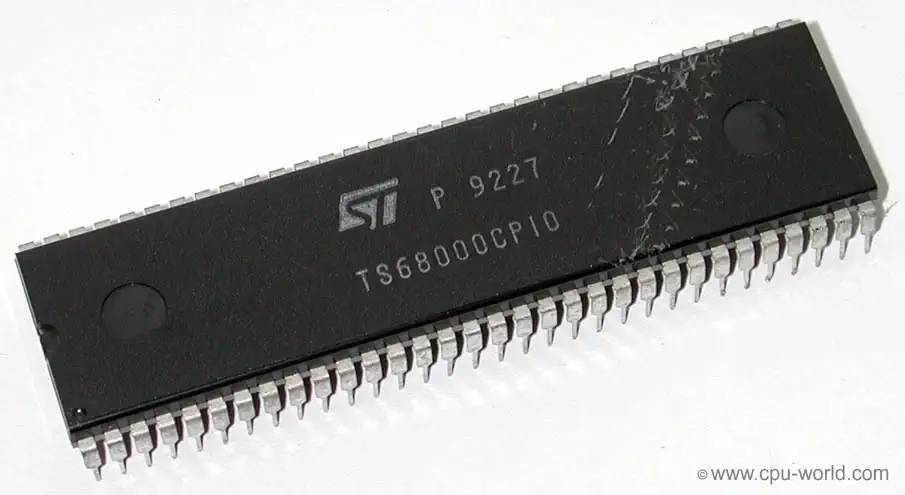Macintosh IIvi
The Macintosh IIvi is the same as the Macintosh Performa 600. It was released onto the market in 1992 alongside the Macintosh IIvx. The IIvi used a slower processor than the IIvx, clocking in at 16MHz whereas the IIvx ran at 32MHz. It also had no floating point unit (FPU). The machine came standard with 4MByte of memory and could be configured with harddrives of 40, 80, 160, or 400MByte. It had 512KByte of VRAM, three NuBus (New Bus) expansion slots and a single Processor Direct Slot.

Motorola 68000 CPU Family
The Motorola 68000 is a 16/32-bit microprocessor that was first released in 1979. It was widely used in computers and other electronic devices during the 1980s and early 1990s. The 68000 was known for its advanced architecture, which included a 32-bit internal bus and a 24-bit address bus, allowing it to access up to 16 megabytes of memory. This made it more powerful than many other processors of its time, such as the Intel 8086 and Zilog Z80. It was also designed to be highly modular and expandable, with a large number of on-chip and off-chip peripherals.
Some of the most famous and successful computers that used the 68000 was the Commodore Amiga and the Atari ST, both of which were popular in the home and personal computer markets. Additionally, it was also used in workstations, such as the Sun 3 and Apollo DN3000, and in a wide variety of embedded systems and industrial control systems. The 68000 was also used in the Macintosh, the first model of the Macintosh was powered by a Motorola 68000 CPU. The processor was eventually succeeded by the 68020 and 68030, which offered improved performance and additional features.
The 68000 has a 32-bit instruction set, with 32-bit registers and a 16-bit internal data bus. The address bus is 24-bit and does not use memory segmentation, making it easier to address memory. There are three ALU's (Arithmetic Logic Unit), two for calculating addresses, and one for data, and the chip has a 16-bit external address bus.
The 68000 architecture was expanded with 32-bit ALUs, and caches. Here is a list with some 680x0 versions and their major improvements:
- 68010 - Virtual memory support
- 68020 - 32-bit ALU & Instruction Cache
- 68030 - On-Chip MMU, 2x 256 byte cache
- 68040 - 2x 4K Cache, 6 stage pipeline, FPU
- 68LC040 - No Floating Point Unit (FPU)
- 68060 - 2x 8K Cache, 10 stage pipelinet

Source: WikiPedia - Motorola 6800
Source: WikiPedia - 68000 Series
RAM max: 68MB Sound Chip TTL Logic for PWM Sound 8-bit Pulse-width modulation Display Chip none Display 640x480 4-bit color
512x384 8-bit color. Best Color 8 bit color Best Graphics 640x480 4 bit color Sprites none System OS MacOS System 6 or 7


